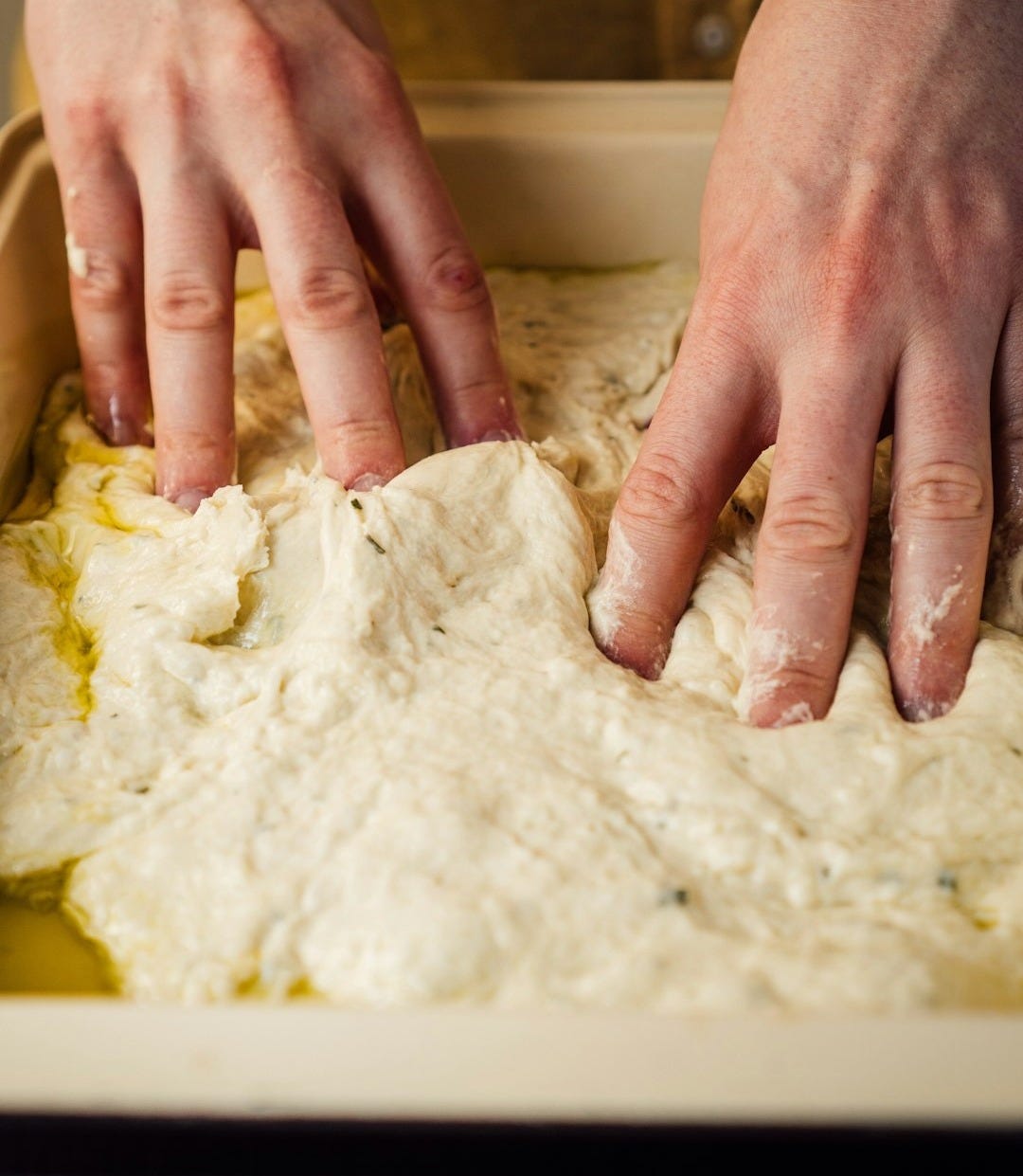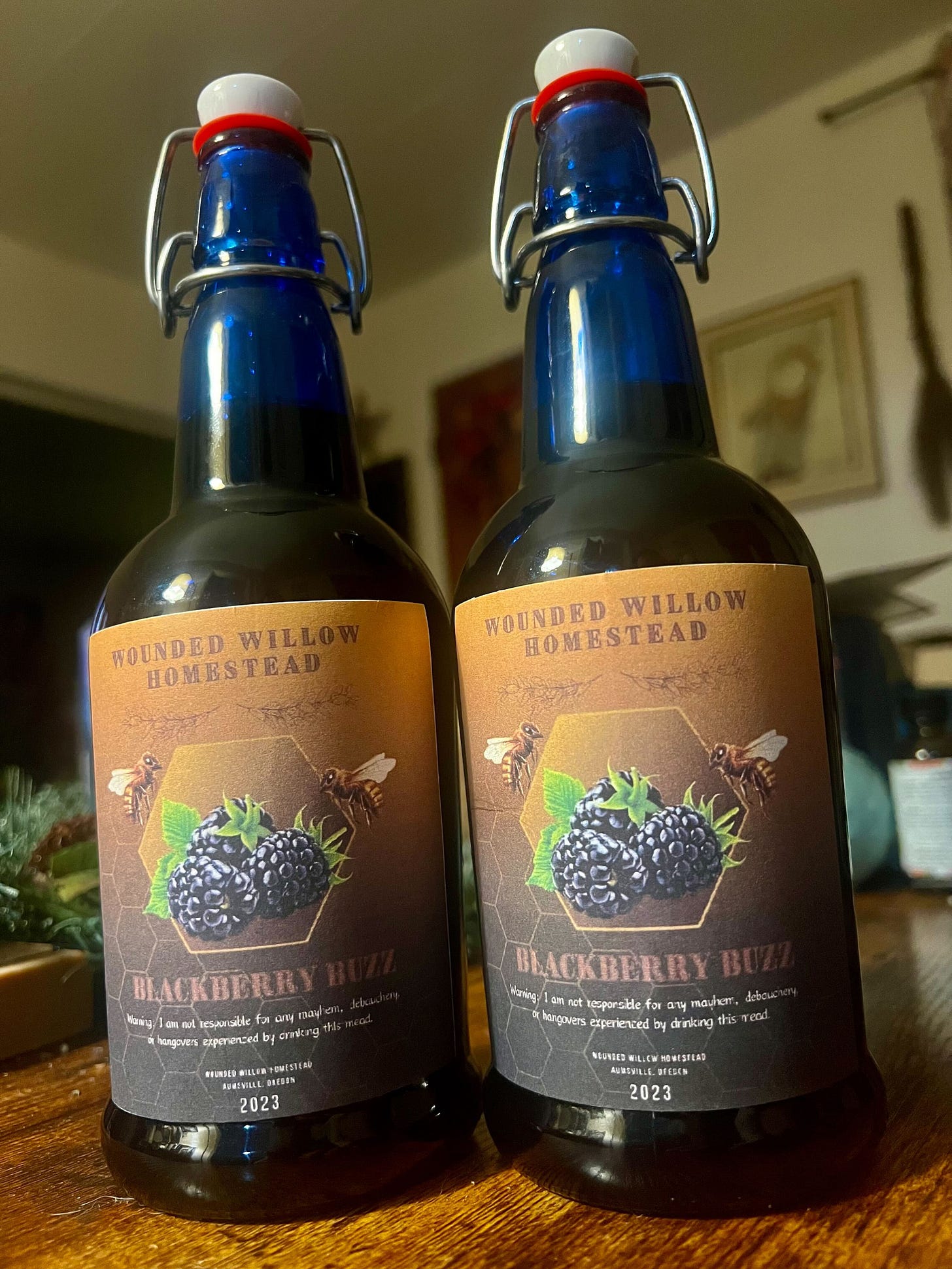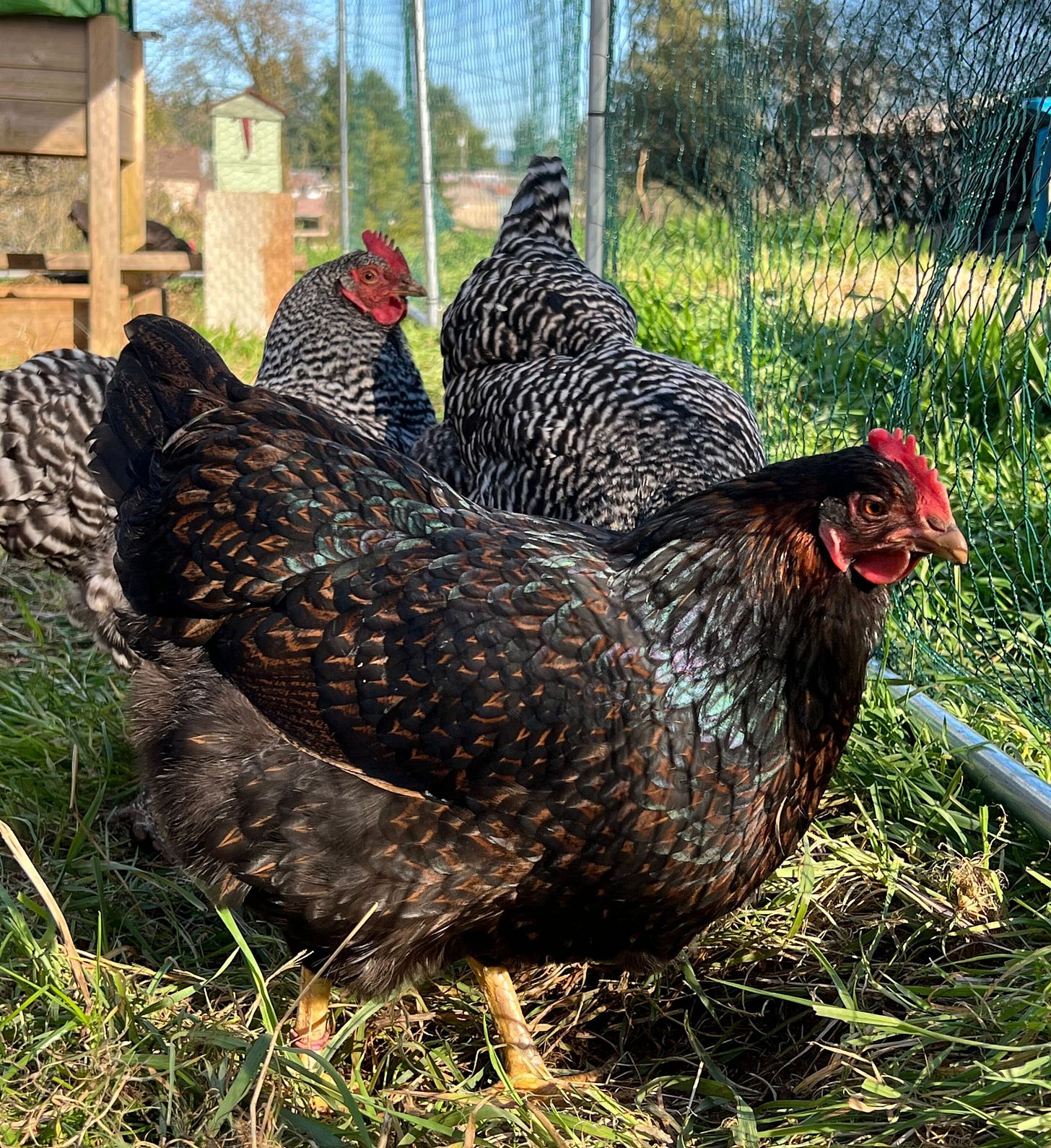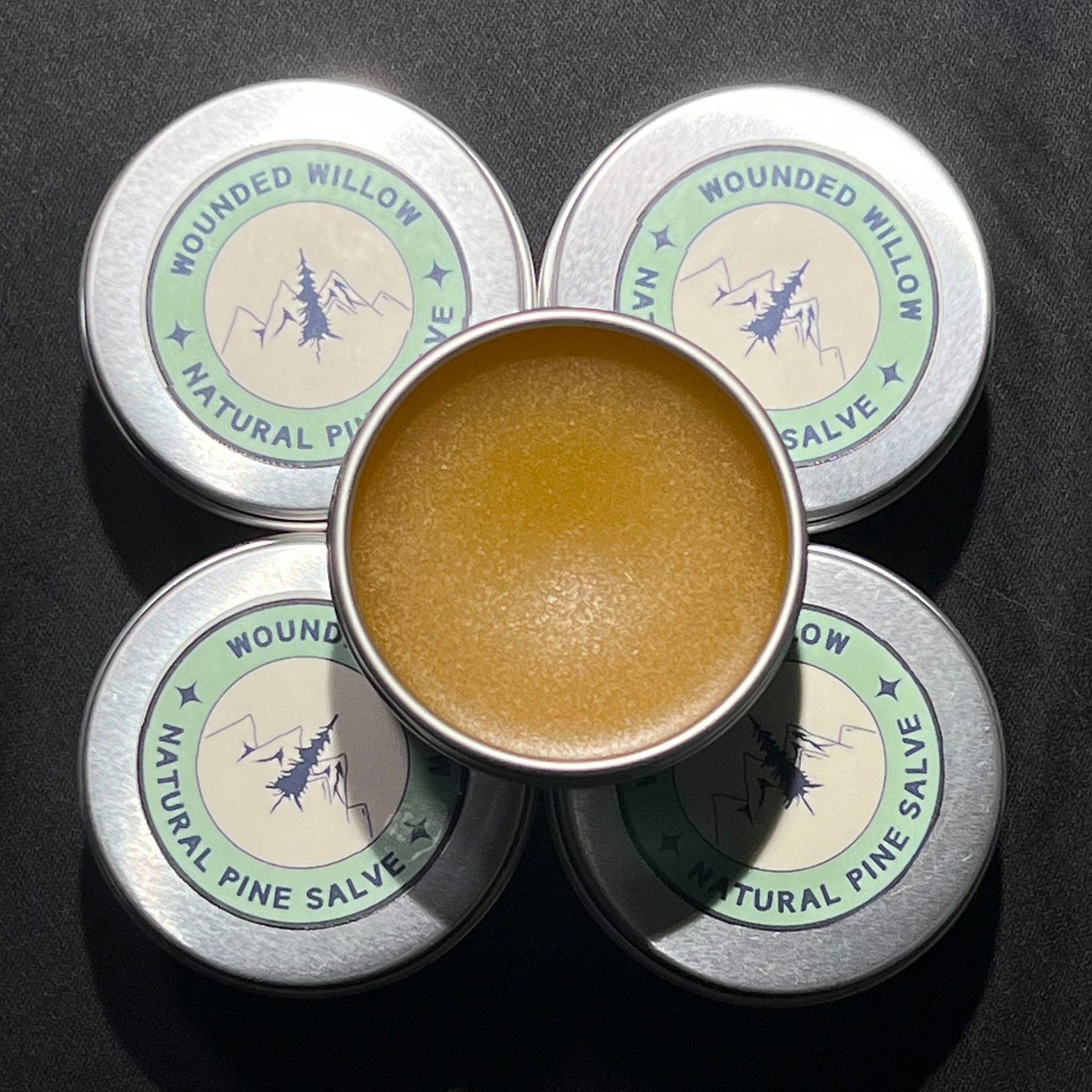Sustainability Sunday: Behavioral Cusps
The Skills That Change Everything (From Homesteading to Life Itself)
What’s one skill you could learn today that might change everything?
The other day, I made bread from scratch. Not from a mix, not with a bread machine, just flour, water, yeast, and time. And when I pulled that golden, crusty loaf out of the oven, something clicked. I wasn’t just making bread. I was unlocking a whole new way of thinking about food. Suddenly, I wasn’t limited to store-bought loaves packed with preservatives. I could experiment with different flours, fermentation times, techniques and flavors. I started reflecting on what else I could make or have made myself instead of buying that led me down a path to deeper knowledge and skills.
You see, some skills don’t just help you; they transform you. In behavior science, we call these behavioral cusps, skills that don’t just stand alone but open doors to entirely new experiences, habits, and opportunities.
A behavioral cusp is a skill or behavior that, once learned, leads to significant and widespread changes by opening access to new reinforcers, environments, and opportunities for further learning (Rosales-Ruiz & Baer, 1997). Unlike isolated skills, behavioral cusps create a ripple effect, enabling individuals to engage in a broader range of meaningful activities and experiences. Because of their far-reaching impact, behavioral cusps are often considered essential targets for intervention and skill development in applied behavior analysis (Bosch & Fuqua, 2001).
Learn to bake bread, and suddenly you’re interested in milling your own flour. Learn to grow tomatoes, and next thing you know, you’re canning, seed-saving, and composting. Keep chickens, and before you know it, you’re knee-deep in permaculture planning and soil health strategies.
So let’s dig into some of the most powerful behavioral cusps in homesteading, natural medicine, and sustainability, because sometimes, all it takes is one small skill to unlock a whole new world.

To support this work, like, share, and subscribe, and if you’re feeling especially supportive, select a paid subscription. Either way, you are loved!
Plant a Seed, Change Your World
Take something as simple as starting a seed. To the untrained eye, it’s just sticking some dirt in a pot and hoping for the best. But if you’ve ever tried it, you know there’s more to it, how deep to plant, how much water to use, when to give up because the seed was clearly a dud.
But once you do get it right? Boom. You’re not just someone who can plant seeds; you’re someone who can grow food. Now, you start thinking about companion planting, seed saving, and whether you really need that overpriced basil at the grocery store when you could grow a whole jungle of it yourself.
And here’s an eye opener: households that grow their own food save an average of $600 to $1,000 per year on groceries (National Gardening Association, 2023). That’s a pretty big win for learning one skill!
But the ripple effect doesn’t stop there. Once you grow your own food, you start learning how to harvest and store it efficiently. Suddenly, you’re thinking about fermenting, drying herbs, or even making your own vegetable powders.
And if you grow a little too much? Well, now you’ve stumbled into another cusp, bartering. Maybe you trade your extra tomatoes for your neighbor’s homemade goat cheese. Or you start a tiny side hustle selling herb bundles at the farmer’s market. One skill leads to another, and before you know it, your kitchen is looking more like a homesteader’s dream.
The Science Behind It (Yes, There’s Science!)
What makes these skills behavioral cusps instead of just run of the mill learned behaviors? A cusp isn’t just any skill, it’s one that:
Opens doors to new experiences or reinforcers (hello, fresh eggs and homemade salsa).
Leads to other important behaviors (because once you have chickens, you start composting, and then, suddenly, you’re knee-deep in soil biology).
Has real-life value (because knowing how to make sourdough is objectively more useful than memorizing the periodic table, don’t @ me).
Creates a ripple effect—you start with one skill, and next thing you know, you’re down a rabbit hole of homesteading, sustainability, and possibly making your own soap.
Now if you’ve gotten this far, I assure you there’s behavior science that backs this up! Studies show that teaching pivotal skills (a.k.a. behavioral cusps) improves overall learning outcomes by 68%, compared to teaching isolated skills (Koegel et al., 1999). That means focusing on the right skills helps people learn faster and more effectively. Now let’s look at how this plays out on in real life!
Chickens: The Gateway Livestock
Chickens. If you’ve never had chickens, it seems simple, just feed them and collect the eggs, right? Ha. Ha. No. Raising chickens can be such an entertaining way to pass the time. I can sit on my back porch or yard and just admire my flock doing there thing around the yard. Even their little henpecking order scuffles are cute to watch. But the next thing you know you’re looking up information about chickens and you fall down a rabbit hole.
First, you learn how to brood baby chicks without accidentally turning your living room or basement into a feathered madhouse. Then you figure out how to build a predator-proof coop (because everything wants to eat chickens). And before you know it, you’re managing a whole little ecosystem, composting their bedding, feeding them kitchen scraps, using their eggshells for calcium, and marveling at how dinosaurs once roamed your backyard.
And did you know? Households with backyard chickens reduce food waste by 34% by repurposing scraps as feed (University of California, 2022). So now, not only are you collecting fresh eggs, but you’re also making your entire household more sustainable.
And once you’re comfortable with chickens, suddenly, goats don’t seem so intimidating. And if you’ve got goats, why not try bees? One behavioral cusp at a time, you go from "maybe I’ll get a few hens" to "well, I guess I run a full-scale regenerative farm now." Yes, chicken math is a thing!
Beyond Chickens: The Snowball Effect
Raising one type of animal makes it way easier to branch into others. Chickens might be the gateway livestock, but goats? They open the door to milking and cheesemaking. Ducks? They lead to aquaponics systems. And if you can raise bees? Well, now you’re making honey, beeswax candles, and possibly getting really into mead-making.

Dehydrating: The Gateway to Food Preservation (and Feeling Like a Wizard)
Maybe you don’t think much about food preservation, until you harvest way more basil than you can use, or your tomato plants bless you with just enough extra fruit that it feels wasteful to toss them, but not quite enough to justify a full-blown sauce-making operation. Here, there’s only two of us, humans that is. Enter dehydration.
A couple years ago I bought a food dehydrator at a local thrift store for $10. Best purchase ever! At first, it seems simple, slice things up, pop them in a dehydrator, and forget about them. But then, something shifts. You realize dried basil lasts way longer than fresh, those dehydrated cherry tomatoes taste like candy, and suddenly, you’re thinking about dehydrating zucchini chips, onion flakes, or even saving seeds for next year’s garden.
And here’s a mind-blowing factoid, households that engage in food preservation reduce food waste by up to 50% compared to those who don’t (ReFED, 2023). Plus, storing dried food takes up a lot less space than filling your fridge with produce you may or may not get around to eating.
Once you get the hang of dehydrating, it’s a short jump to experimenting with homemade spice blends, grinding herbs into powders, or storing seeds for future planting, each one unlocking a whole new level of self-sufficiency.
The Natural Progression to Fermentation and Beyond
Once you start preserving food, it’s hard to stop. First, it’s dehydrating herbs. Next you’re making beer with your homegrown hops. Then who knows, maybe your fermenting kimchi or sourdough starter. Then after that, you’re making your own vinegar from apple peels and brewing herbal tinctures like some kind of woodland alchemist.
The best part is, these skills build on each other. Learning to dry herbs leads to making herbal teas, which leads to creating your own medicinal blends. Learning to ferment can lead to better gut health, which makes you more aware of nutrition, which might just get you into growing medicinal mushrooms. It’s a slippery (but delicious) slope.
Home Apothecary: The Ultimate Self-Sufficiency Skill
If you’ve ever reached for peppermint tea when you had an upset stomach, or used aloe on a sunburn, congratulations! You’ve already taken your first step into the world of natural medicine. But like every good behavioral cusp, once you learn a little, a whole world opens up.
It starts with drying a few herbs for tea, but then you realize you can infuse oils for homemade salves. Then you learn that elderberries make a great immune-boosting syrup, and suddenly, you’re making fire cider and tinctures. Before you know it, you’ve got a whole cabinet stocked with homemade remedies, and possibly some very confused friends who wonder why you have a gallon of garlic-infused honey in your pantry.
And the best part? A well-stocked home apothecary can reduce reliance on over-the-counter medications by up to 40% (American Herbalists Guild, 2023). That means fewer trips to the pharmacy, fewer unnecessary chemicals, and a whole lot of personal empowerment.
Natural Medicine: The Ripple Effect
Learning one herbal remedy often leads to learning many others:
Making teas → Leads to learning herbal blends. I’ve really been enjoying exploring and learning to make different varieties to address different needs.
Infusing oils → Leads to making salves and lotions. My favorite homemade salves are dandelion, nettle and pine so far. They are relatively easy to make.
Creating tinctures → Leads to understanding plant chemistry.
Foraging for wild plants → Leads to deeper ecological knowledge. I’ve learned so much just in the past six months. It’s actually quite mind-blowing.
Before you know it, you’re growing medicinal plants, making herbal vinegars, and treating minor illnesses with remedies you crafted yourself.
Other Behavioral Cusps That Unlock a World of Skills
If you’re looking for skills that will change your life, here are a few more:
Self-Sufficiency & Homesteading
Composting → Leads to better gardening, sustainability, and waste reduction.
Seed saving → Opens up heirloom gardening, biodiversity, and food security.
Fermentation → Expands into making kombucha, sauerkraut, yogurt, and natural probiotics.
Basic carpentry → Unlocks skills like building animal shelters, furniture, and home repairs.
Rainwater collection → Leads to sustainable water management and conservation.
Animal Husbandry & Farming
Beekeeping → Leads to honey production, pollination knowledge, and candle-making.
Milking goats or cows → Expands into cheesemaking, soap-making, and homemade dairy.
Raising quail or ducks → Leads to egg production, meat self-sufficiency, and ecosystem balance.
Natural Medicine & Sustainable Living
Foraging wild plants → Expands into herbal medicine, survival skills, and cooking.
Soap-making → Leads to skincare, zero-waste living, and natural product development.
Making vinegar → Unlocks fermentation, herbal tinctures, and natural cleaning solutions.
Final Thoughts: One Skill Leads to Another
The magic of behavioral cusps is that they don’t just change one thing, they set off a chain reaction. Learn to grow food, and suddenly you’re preserving it. Learn to raise chickens, and suddenly you’re composting and improving your soil. Start making herbal remedies, and soon you’re growing your own medicine.
Each step leads to another, creating a life that is more self-sufficient, sustainable, and fulfilling. And it all starts with one little skill, the one that opens the door.
So what’s your next behavioral cusp?
References
Bosch, S., & Fuqua, R. W. (2001). Behavioral cusps: A model for selecting target behaviors. Journal of Applied Behavior Analysis, 34(1), 123–125.
Koegel, R. L., Koegel, L. K., Harrower, J. K., & Carter, C. M. (1999). Pivotal Response Intervention I: Overview of Approach. Journal of Behavioral Education, 9(3), 219-227.
Kolb, D. A. (1984). Experiential Learning: Experience as the Source of Learning and Development. Prentice Hall.
National Gardening Association. (2023). The Impact of Home Gardening on Household Expenses.
ReFED. (2023). Food Waste Reduction Report: Strategies for Households.
Rosales-Ruiz, J., & Baer, D. M. (1997). Behavioral cusps: A developmental and pragmatic concept for behavior analysis. Journal of Applied Behavior Analysis, 30(3), 533–544.
University of California. (2022). The Role of Backyard Chickens in Sustainable Food Systems.
University of Vermont. (2021). The Impact of Self-Sufficiency Practices on Resilience and Preparedness.
Harvard Resilience Study. (2022). Measuring Household Resilience to Supply Chain Disruptions.
USDA. (2023). Food Waste in America: Causes and Solutions.
To support this work, like, share, and subscribe, and if you’re feeling especially supportive, select a paid subscription. Either way, you are loved!






